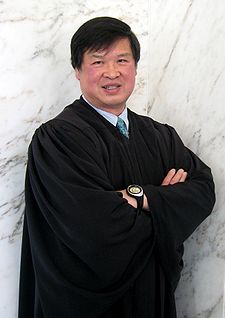New York Judge Rejects Google Books Settlement
SAN FRANCISCO, March 22, 2011 — A federal judge in New York City has rejected the expansive amended settlement agreement between Google, U.S. authors and publishers more than a year after the court heard from a wide variety of interested parties in hearings on the fairness of the settlement of a cla
SAN FRANCISCO, March 22, 2011 — A federal judge in New York City has rejected the expansive amended settlement agreement between Google, U.S. authors and publishers more than a year after the court heard from a wide variety of interested parties in hearings on the fairness of the settlement of a class action lawsuit.
“The question presented is whether is whether the [amended settlement agreement] is fair, adequate, and reasonable. I conclude that it is not,” wrote Second Circuit Judge Denny Chin, who was a federal district court judge for the Southern District of New York when the case landed in his lap.
“While the digitization of books and the creation of a universal digital library would benefit many, the ASA would simply go too far,” said in his 46-page opinion. “It would permit this class action — which was brought against defendant Google Inc. (Google) to challenge its scanning of books and display of ‘snippets’ for on-line searching — to implement a forward-looking business arrangement that would grant Google significant rights to exploit entire books, without permission of the copyright owners. ”
The judge appeared on first glance to buy a major argument of the opponents of the settlement, namely those made by competitors, and the U.S. Justice Department.
“Indeed, the ASA would give Google a significant advantage over competitors, rewarding it for engaging in wholesale copyright of copyrighted works withgout permission, while releasing claims well beyond those presented in this case.”
Google unveiled its plan to create an online database of “all the world’s books” in 2004. Publishers and authors sued, alleging that the scanning of their books infringed upon their copyrights.
Google argued that its project was legal because it only made limited excerpts available to the public.
If it had been approved, the $125 million settlement would have created the largest collection of online books in the world, and it would have created a book rights registry that authors would have had to opt out of so that their books would not be included for sale through Google’s digital collection.
Many authors had objected to that set-up, instead asking for a system where they would have opted into the agreement instead. They feared that the settlement would have robbed them of bargaining power when it came to renegotiating their rights.
Almost 7,000 authors and their estates had opted out of the Google book settlement. Big name authors include Jeffrey Archer, Bret Easton Ellis and Ursula LeGuin, among others.
Chin suggested in his opinion that that this could be a fix the parties could make to the settlement.
A lawyer for Google said that the company was disappointed with Tuesday’s ruling.
“This is clearly disappointing, but we’ll review the Court’s decision and consider our options,” said Hilary Ware, Google’s managing counsel in a statement. “Like many others, we believe this agreement has the potential to open-up access to millions of books that are currently hard to find in the US today. Regardless of the outcome, we’ll continue to work to make more of the world’s books discoverable online through Google Books and Google eBooks.”
As of last year, Google had scanned more than 12 million books from the collections of various academic libraries both in the United States and abroad. As a point of comparison, the Library of Congress, founded in 1800, houses 32 million books.
Under the terms of the amended settlement, some authors might have received a portion of any of the revenues that Google would have made from the scanned books. But others might not have received anything because they’d assigned all their rights to the publishers, or hadn’t negotiated the rights at all.
Among other things, Google had planned on selling subscriptions of its database to libraries, making copyrighted books available for purchase to consumers, and placing advertising against search result snippets of books.
Broadbandbreakfast.com’s Intellectual Property Club held a detailed discussion about the Google Book Settlement and its impact on authors last May.
You may access it by clicking here, or by simply clicking on the play button below.
The Intellectual Property Breakfast Club With Inaugural Event “The Google Book Search Case and E-Book Licensing” from Broadband Breakfast on Vimeo.









Member discussion